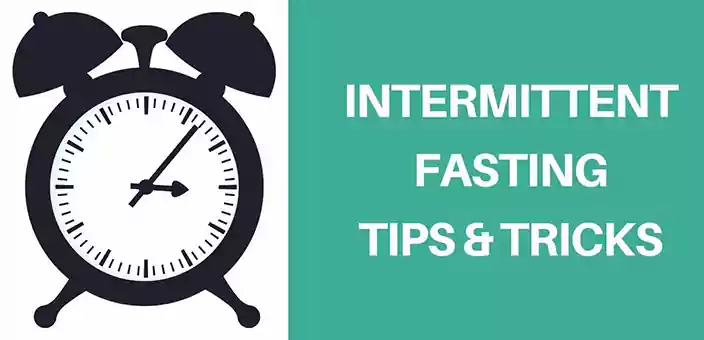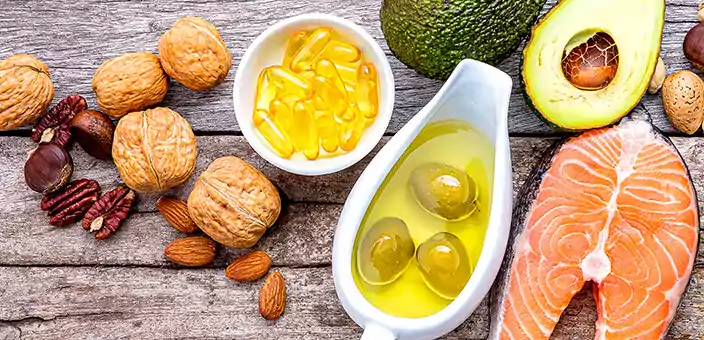
Intermittent Fasting
5 Tips To Make Your Intermittent Fasting Super Easy
Jul 19, 2019If you have been around for a while, you already know that we are huge advocates of Intermittent Fasting (IF). Not only can intermittent fasting help you lose weight and keep it off for good, this way of eating can also help stabilise hormones, reverse Diabetes Type 2, boost cardiovascular health and increase longevity.
Intermittent Fasting is not a fad diet. Instead, the best way to describe it is to call it time-restricted eating. Your day is divided into two simple windows – fasting window (where you abstain from eating) and eating window (where you consume most of your calories). There are many ways to do intermittent fasting, with the most popular methods being the 16:8 method (fast 16 hours, eat for 8 hours), alternate day fasts or the 5:2 methods where you can fast any two days of the week. Read more on that here.
But, when you are new to Intermittent Fasting, mornings can be rough! If you have always looked forward to a big breakfast, it’s not so easy to transition into 16 hour long fasts, where you eat the first meal for the day around noon. So when you wake up with a rumbling tummy, only to realise you’re not going to be eating for another few hours, things can go south easily.
Hunger pangs driving you crazy? Don’t worry, we have you covered! There are so many benefits of IF that it’s definitely worth sticking with the fast….which is why you’ll need to arm yourself with some coping strategies to tide things over until meal-time. Below are 5 tips to make intermittent fasting easier and keep those hungries away!
Tip #1: Stay Hydrated

Did you know that your hunger pangs could actually be a sign that you’re dehydrated? The first thing to do when your stomach rumbles is to drink a tall glass of water. Often times, a glass of water will help quell that growling stomach, until you can fix yourself a warm beverage. Dehydration can create fatigue and slow down your metabolism too, neither of which are good news during a fast.
Also, when you’re fasting, the body is naturally detoxifying. This is the time your body needs extra water to flush out toxins, which is why it’s a good idea to increase intake. Drinking water during the fast aids your body in removing toxins via urine and sweat. Aim to drink 2-3 litres of water every day.
Tip #2: Drink Coffee (or Tea)

Your mornings are hard enough without breakfast, you don’t want to make them harder by skipping your morning cup’ o Joe too! Plain coffee has zero calories, which is why it’s totally allowed during fasting. Unsweetened black coffee will not throw you off ketosis. And if you work out in fasted state, coffee can give you the boost you need.
Not a coffee person? Try green tea instead! Extracts found in green tea can help curb appetite, clam cravings and increase satiety.
Bonus Tip: Feel hungry? Add fat to your coffee or tea! The purists out there might say that the calories from fat shouldn’t be allowed during the fasting window, but we think that these few calories can actually make fasting much easier. A good fat like grass-fed butter or cold-pressed coconut oil will not affect your insulin levels, and will not throw your body out of the fat-burning process (the core idea behind fasting). Bulletproof coffee will take the edge off the hunger and help increase ketones while keeping glucose levels stable.
Tip #3: Time It Right!
For some people, intermittent fasting becomes easier if they stop eating 3 hours before bed time. Your fasting window doesn’t have to be 8:00pm to 12:00 noon next day. You can adjust this window based on your sleeping routine.
Count back 3 hours from your usual bed time, and that’s the time you should stop eating. This facilitates proper digestion, so that you sleep soundly. When you sleep soundly, your cravings stay under control.
If your last meal is too close to bedtime, your body is still processing the food you had for dinner. The body directs more blood flow to the stomach during digestion, raising your core temperature, which can interfere with sound sleep. When you don’t get a restful night’s sleep, you are more prone to craving midnight snacks or a large breakfast upon waking.
Bonus tip: Woke up starving despite eating 3 hours before bedtime? Drink a cup of bone broth. While it does have a few calories, just a cup of nutrient-dense bone broth will not through you out of ketosis. What it will do, though, is to keep you satiated until meal time.
Tip #4: Try MCT Oil

You are allowed to consume medium-chain triglycerides (MCT) during your fast, and this is one opportunity you shouldn’t miss out on! MCT oil can increase ketone production which keeps hunger pangs at bay and also enhances mental clarity.
Studies have shown that MCTs can boost metabolism by 12%. Add a spoonful to your coffee or morning cup of tea to take the edge off hunger.
Tip #5: Choose the Right Foods

What keeps you feeling full for longer and improves satiety without adding too many calories to your food intake? Answer – fibre. Fibre rich foods take longer to digest, which is why they keep those morning hunger pangs at bay. You will find fibre in a variety of healthy vegetables, fruits, nuts and seeds, and healthy carb-loaded whole grains.
Proteins and healthy fats also take longer to digest, and should be an important component of your diet. Lean meats, lentils, eggs, cold-pressed coconut oil, avocadoes, olive oil, grass-fed butter, nuts and seeds are all good additions to your diet. Full of flavour, these foods improve satiety and help reduce hunger and cravings for many hours afterwards. There’s a reason low-carb diets (like the Keto diet) further increase the benefits of intermittent fasting! Avoid all processed foods that are loaded with bad calories but digest faster, leaving you starving while you’re fasting.
Bonus tip: If you are feeling extremely hungry, try adding a teaspoon of fibre supplement in water and drink it slowly. Research has found the beverages with added fibre can decrease hunger pangs and enhance perceived satiety.
As your body adapts to Intermittent Fasting, things get easier. With these simple tips, you can better manage your cravings, so that fasting doesn’t feel like torture! Remember, different things work for different people, so experiment with a variety of ideas and stick with the ones that work for you.
References:
Thermic effect of medium-chain and long-chain triglycerides in man – https://academic.oup.com/ajcn/article-abstract/44/5/630/4692190
Recent findings of green tea extract AR25 (Exolise) and its activity for the treatment of obesity – https://www.sciencedirect.com/science/article/pii/S0944711304700744
Fibre in beverages can enhance perceived satiety – https://www.ncbi.nlm.nih.gov/pubmed/19306033



